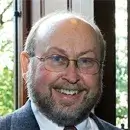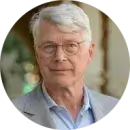Global Nuclear Future

The Global Nuclear Future Initiative (GNF) examines and addresses the proliferation risks raised by the spread of nuclear technology around the world. As more and more countries seek the benefits of nuclear energy to respond to fast-paced industrialization and urbanization, the nuclear proliferation, security, and safety risks increase exponentially. The Academy's GNF project seeks to guide domestic and international policymakers trying to balance the pursuit of a national nuclear energy program with the potential safety, security, and economic concerns.
The Global Nuclear Future (GNF) Initiative is a comprehensive interdisciplinary, multi institutional, and multi-national project that seeks to identify paths that permit the peaceful use of nuclear power to meet the growing demand for energy, while minimizing the potential adverse consequences of the spread of inherently risky nuclear technology. GNF is distinct in its ability to bring together diverse communities, including leading experts from academia, government, nongovernmental organizations, and the nuclear industry. By engaging with key constituencies, particularly in Southeast Asia and in the Middle East whose choices and behavior will have a significant impact on the character of the international nuclear order, GNF identifies and promotes best practices to minimize the security and nonproliferation concerns associated with the spread of nuclear energy.
The GNF project builds on the Academy's history of more than 65 years - including a dozen prior Academy projects - dedicated to exploring the risks of nuclear weapons, examining the potential of nuclear power, and offering expertise to the nation.
Project Work
GNF brings together diverse communities, including leading experts from academia, government, nongovernmental organizations, and the nuclear industry, to foster dialogue and debate with and among nuclear newcomers and encourage transparency and international cooperation.
People
Steven E. Miller
Robert Rosner
Scott D. Sagan
Scott D. Sagan
Richard Andrew Meserve
Sam Nunn
George Perkovich
William James Perry
William C. Potter
John W. Rowe
George Pratt Shultz
Events
Project Outcomes
Since 2008, the Academy has made significant progress in identifying and promoting policy recommendations to minimize the security and proliferation risks inherent in the global spread of nuclear energy. For example, the work of the GNF Initiative influenced the outcome of the 2010 Nuclear Non-Proliferation Treaty (NPT) Review Conference. A recent paper, Nuclear Collisions: Discord, Reform & the Nuclear Nonproliferation Regime, also informed discussions with delegates to the May 2012 NPT Preparatory Committee meeting in Vienna, Austria. In addition, the Academy’s recommendations on the back-end of the nuclear fuel cycle are reflected in the 2012 report of the U.S. President’s Blue Ribbon Commission on America’s Energy Future.



